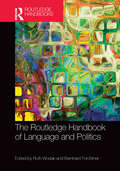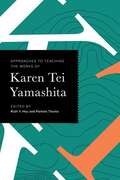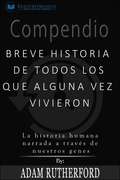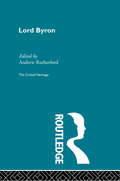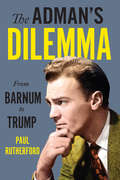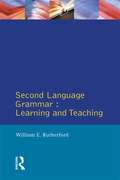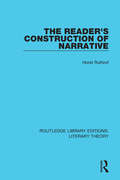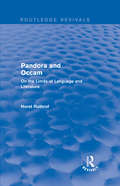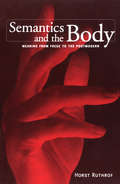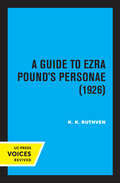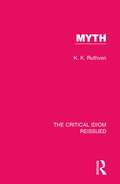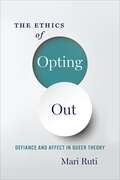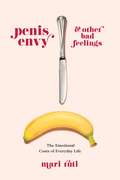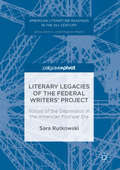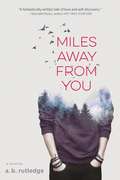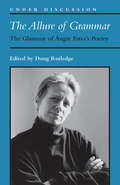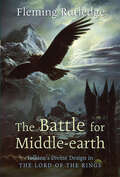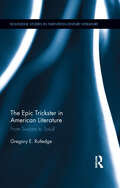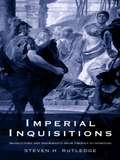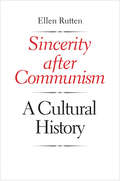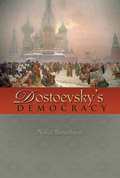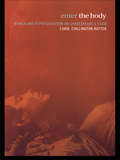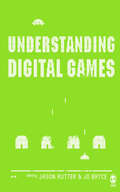- Table View
- List View
Medieval Shakespeare
by Ruth Morse Helen Cooper Peter Holland Ruth Morse Helen CooperMedieval culture pervaded Shakespeare’s life and work, from his childhood, spent within reach of the last performances of the Coventry Corpus Christi plays, to his dramatization of Chaucer in The Two Noble Kinsmen three years before his death. The world he lived in was still largely a medieval one, in its topography and its institutions. The language he spoke had been forged over the centuries since the Norman Conquest. The genres in which he wrote, not least historical tragedy, love-comedy and romance, were medieval inventions. A high proportion of his plays have medieval origins and he kept returning to Chaucer, acknowledged as the greatest poet in the English language. Above all, he grew up with an English tradition of drama developed during the Middle Ages that assumed that it was possible to stage anything – all time, all space. Helen Cooper’s book looks at the role of all these continuations of medieval culture in enabling Shakespeare to become the world’s greatest playwright. Shakespeare and the Medieval World provides a panoramic overview that opens up new vistas within his work and uncovers the richness of his inheritance.
The Routledge Handbook of Language and Politics (Routledge Handbooks in Linguistics)
by Ruth Wodak and Bernhard ForchtnerThe Routledge Handbook of Language and Politics provides a comprehensive overview of this important and dynamic area of study and research. Language is indispensable to initiating, justifying, legitimatising and coordinating action as well as negotiating conflict and, as such, is intrinsically linked to the area of politics. With 45 chapters written by leading scholars from around the world, this Handbook covers the following key areas: Overviews of the most influential theoretical approaches, including Bourdieu, Foucault, Habermas and Marx; Methodological approaches to language and politics, covering – among others – content analysis, conversation analysis, multimodal analysis and narrative analysis; Genres of political action from speech-making and policy to national anthems and billboards; Cutting-edge case studies about hot-topic socio-political phenomena, such as ageing, social class, gendered politics and populism. The Routledge Handbook of Language and Politics is a vibrant survey of this key field and is essential reading for advanced students and researchers studying language and politics.
Approaches to Teaching the Works of Karen Tei Yamashita (Approaches to Teaching World Literature #168)
by Ruth Y. Hsu and Pamela ThomaStructurally innovative and culturally expansive, the works of Karen Tei Yamashita invite readers to rethink conventional paradigms of genres and national traditions. Her novels, plays, and other texts refashion forms like the immigrant tale, the postmodern novel, magical realism, apocalyptic literature, and the picaresque and suggest new transnational, hemispheric, and global frameworks for interpreting Asian American literature.Addressing courses in American studies, contemporary fiction, environmental humanities, and literary theory, the essays in this volume are written by undergraduate and graduate instructors from across the United States and around the globe. Part 1, "Materials," outlines Yamashita's novels and other texts, key works of criticism and theory, and resources for Asian American and Asian Brazilian literature and culture. Part 2, "Approaches," provides options for exploring Yamashita's works through teaching historical debates, outlining principles of environmental justice, mapping geographic boundaries to highlight power dynamics, and drawing personal connections to the texts. Additionally, an essay by Yamashita describes her own approaches to teaching creative writing.
Compendio: La historia humana narrada a través de nuestros genes
by Adam RutherfordEl poder del ADN y la información que contiene, son inmensos. Imagine usar esa información para descubrir nuestro pasado. En nuestros genomas, cada uno de nosotros llevamos la historia de nuestra especie: nacimientos, fallecimientos, enfermedades, guerra, hambruna, migración y sexo. Somos mucho más que nuestro ADN, pero este contiene la llave de nuestro pasado. "Esta es una historia acerca de usted. Trata sobre la historia de quién es usted y cómo llegó a ser lo que es" - Adam Rutherford.
Lord Byron: The Critical Heritage (Critical Heritage Ser.)
by Andrew RutherfordThe Critical Heritage gathers together a large body of critical sources on major figures in literature. Each volume presents contemporary responses to a writer's work, enabling student and researcher to read the material themselves.
The Adman’s Dilemma: From Barnum to Trump
by Paul RutherfordThe Adman’s Dilemma is a cultural biography that explores the rise and fall of the advertising man as a figure who became effectively a licensed deceiver in the process of governing the lives of American consumers. Apparently this personage was caught up in a contradiction, both compelled to deceive yet supposed to tell the truth. It was this moral condition and its consequences that made the adman so interesting to critics, novelists, and eventually filmmakers. The biography tracks his saga from its origins in the exaggerated doings of P.T. Barnum, the emergence of a new profession in the 1920s, the heyday of the adman’s influence during the post-WW2 era, the later rebranding of the adman as artist, until the apparent demise of the figure, symbolized by the triumph of that consummate huckster, Donald Trump. In The Adman’s Dilemma, author Paul Rutherford explores how people inside and outside the advertising industry have understood the conflict between artifice and authenticity. The book employs a range of fictional and nonfictional sources, including memoirs, novels, movies, TV shows, websites, and museum exhibits to suggest how the adman embodied some of the strange realities of modernity.
Greek Tragic Style
by R. B. RutherfordGreek tragedy is widely read and performed, but outside the commentary tradition detailed study of the poetic style and language of Aeschylus, Sophocles and Euripides has been relatively neglected. This book seeks to fill that gap by providing an account of the poetics of the tragic genre. The author describes the varied handling of spoken dialogue and of lyric song; major topics such as vocabulary, rhetoric and imagery are considered in detail and illustrated from a broad range of plays. The contribution of the chorus to the dramas is also discussed. Characterisation, irony and generalising statements are treated in separate chapters and these topics are illuminated by comparisons which show not only what is shared by the three major dramatists but also what distinguishes their practice. The book sheds light both on the genre as a whole and on many particular passages.
Second Language Grammar: Learning and Teaching (Applied Linguistics and Language Study)
by William E. RutherfordThe thrust of the book is not so much upon the formation of grammatical constructs but rather upon the shape of the grammatical system and its relation to semantics, discourse and pragmatics.
The Reader's Construction of Narrative (Routledge Library Editions: Literary Theory #22)
by Horst RuthrofIn this book, first published in 1981, the author argues that narrative is an interaction between "the presented world and the presentational process" and attempts to define narrative from the perspective of reading. The Reader’s Construction of Narrative includes chapters on narrative language, translating narrative and discusses what happens when we read a narrative text. This book will be of particular interest to students of literary theory.
Routledge Revivals: On the Limits of Language and Literature (Routledge Revivals)
by Horst RuthrofFirst published in 1992, this book evokes Pandora and Occam as metaphoric corner posts in an argument about language as discourse and in doing so, brings analytic philosophy to bear on issues of Continental philosophy, with attention to linguistic, semiological, and semiotic concerns. Instead of regarding meanings as guaranteed by definitions, the author argues that linguistic expressions are schemata directing us more or less loosely toward the activation of nonlinguistic sign systems. Ruthrof draws up a heuristic hierarchy of discourses, with literary expression at the top, descending through communication-reduced reference and speech acts to formal logic and digital communication at the bottom. The book offers multiple perspectives from which to review traditional theories of meaning, working from a wide variety of theorists, including Peirce, Frege, Husserl, Derrida, Lyotard, Davidson, and Searle. In Ruthrof’s analysis, Pandora and Occam illustrate the opposition between the suppressed rich materiality of culturally saturated discourse and the stark ideality of formal sign systems. This book will be of interest to those studying linguistics, literature and philosophy.
Semantics and the Body: Meaning from Frege to the Postmodern
by Horst RuthrofIn traditional semantics, the human body tends to be ignored in the process of constructing meaning. Horst Ruthrof argues, by contrast, that the body is an integral part of this hermeneutic activity. Strictly language-based theories, and theories which conflate formal and natural languages, run into problems when they describe how we communicate in cultural settings. Semantics and the Body proposes that language is no more than a symbolic grid which does not signify at all unless it is brought to life by non-linguistic signs.Ruthrof reviews and analyses various 'orthodox' theories of meaning, from the views of Gottlob Frege at the beginning of the twentieth century to those of theorists in the postmodern period, then offers an alternative approach of his own. His theory features 'corporeal semantics,' and holds that meaning has ultimately to do with the body and that the meaning of linguistic expressions is indeterminate without the aid of visual, tactile, olfactory, and other bodily signs. This approach also remedies what Ruthrof sees also as a loss of interpretive will in the postmodern era.Pedagogy in many fields could be enriched by a systemic integration of non-verbal semiosis into the linguistically dominated syllabus. Those involved in discourse analysis, literature, art criticism, film theory, pedagogy, and philosophy will find the implications of Ruthrof's study considerable.
A Guide to Ezra Pound's Personae (1926)
by K. K. Ruthven"Both a commentary on and a critical appreciation of the work of the early Pound. It starts off with a luci introduction to Pound's technique in general, and to his imagist phase (during which the poems commented on in this book were written) in particular. In the critical passages Mr. Ruthven steers a sage middle course between the attitudes of uncritical adoration and wholesale rejection that mar so much of the literature on Pound. . . . informative without being pedantic, and exhaustive without being long-winded. . . .To turn to Mr. Ruthven's Guide is to follow in the footsteps of an intelligent, sensitive and reliable scholar." --English Studies This title is part of UC Press's Voices Revived program, which commemorates University of California Press's mission to seek out and cultivate the brightest minds and give them voice, reach, and impact. Drawing on a backlist dating to 1893, Voices Revived makes high-quality, peer-reviewed scholarship accessible once again using print-on-demand technology. This title was originally published in 1969.
Myth (The Critical Idiom Reissued #30)
by K. K. RuthvenFirst published in 1976, this book provides a helpful introduction to the study of myth as a concept and its relationship to literature. It examines historically some of the leading theories concerning the nature and origins of myth and, with reference to a wide variety of texts, illustrates the relevance of these theories to literature. It also considers the different ways in which myths have been perceived over time, both positive and negative, and the effect this has had on the production of new mythologies. It concludes with an assessment if the problems created by the presence of myth in literature and its use as a tool of literary criticism.
The Ethics of Opting Out: Queer Theory's Defiant Subjects
by Mari RutiIn The Ethics of Opting Out, Mari Ruti provides an accessible yet theoretically rigorous account of the ideological divisions that have animated queer theory during the last decade, paying particular attention to the field's rejection of dominant neoliberal narratives of success, cheerfulness, and self-actualization. More specifically, she focuses on queer negativity in the work of Lee Edelman, Jack Halberstam, and Lynne Huffer, and on the rhetoric of bad feelings found in the work of Sara Ahmed, Lauren Berlant, David Eng, Heather Love, and José Muñoz. Ruti highlights the ways in which queer theory's desire to opt out of normative society rewrites ethical theory and practice in genuinely innovative ways at the same time as she resists turning antinormativity into a new norm. This wide-ranging and thoughtful book maps the parameters of contemporary queer theory in order to rethink the foundational assumptions of the field.
Penis Envy and Other Bad Feelings: The Emotional Costs of Everyday Life
by Mari RutiMari Ruti combines theoretical reflection, cultural critique, feminist politics, and personal experience to analyze the prevalence of bad feelings in contemporary everyday life. Proceeding from a playful engagement with Freud’s idea of penis envy, Ruti’s autotheoretical commentary fans out to a broader consideration of neoliberal pragmatism. She focuses on the emphasis on good performance, high productivity, constant self-improvement, and relentless cheerfulness that characterizes present-day Western society. Revealing the treacherousness of our fantasies of the good life, particularly the idea that our efforts will eventually be rewarded—that things will eventually get better—Ruti demystifies the false hope that often causes us to tolerate an unbearable present.Theoretically rigorous and lucidly written, Penis Envy and Other Bad Feelings is a trenchant critique of contemporary gender relations. Refuting the idea that we live in a postfeminist world where gender inequalities have been transcended, Ruti describes how neoliberal heteropatriarchy has transformed itself in subtle and stealthy, and therefore all the more insidious, ways. Mobilizing Michel Foucault’s concept of biopolitics, Jacques Lacan’s account of desire, and Lauren Berlant’s notion of cruel optimism, she analyzes the rationalization of intimacy, the persistence of gender stereotypes, and the pornification of heterosexual culture. Ruti shines a spotlight on the depression, anxiety, frustration, and disenchantment that frequently lie beneath our society’s sugarcoated mythologies of self-fulfillment, romantic satisfaction, and professional success, speaking to all who are concerned about the emotional costs of the pressure-cooker ethos of our age.
Literary Legacies of the Federal Writers’ Project
by Sara RutkowskiThe first book-length literary analysis of the WPA's Federal Writers' Project (FWP)--a massive New Deal program that put thousands to work documenting the country during the Depression. Drawing on critical histories, archival documents, and select works of fiction, the book examines the nature and history of the FWP's documentary method and its literary imprint, particularly on three key black American writers: Ralph Ellison, Dorothy West, and Margaret Walker. By aiming their documentary lenses so precisely on individual voices, folklore, and cultural communities, FWP writers would ultimately eschew the social realism of thirties culture in favor of themes surrounding personal and cultural identities in the postwar era. This concise volume demonstrates how the FWP served as a repository from which many of the most treasured 20th century writers drew material, techniques, and philosophical direction in ways that would help steer the course of American writing.
Miles Away from You
by A. B. Rutledge<P> It's been three years since Miles fell for Vivian, a talented and dazzling transgender girl. Eighteen months since a suicide attempt left Vivian on life support. Now Miles isn't sure who he is without her, but knows it’s time to figure out how to say goodbye. <P> He books a solo trip to Iceland but then has a hard time leaving the refuge of his hotel room. After a little push from Oskar, a local who is equal parts endearing and aloof, Miles decides to honor Vivian's life by photographing her treasured Doc Martens standing empty against the surreal landscapes. <P>With each step he takes, Miles finds his heart healing--even as he must accept that Vivian, still in a coma, will never recover. <P>Told through a series of instant messages to Vivian, this quirky and completely fresh novel explores love, loss, and the drastic distances we sometimes have to travel in order to move on. <P>From debut voice A.B. Rutledge comes a quirky and completely fresh story of young love, loss, and the drastic distances we sometimes have to travel in order to move on, perfect for fans of Adam Silvera and Jandy Nelson. Explores gender nonconformity and the spectrum of sexual preference in an authentic way.
The Allure of Grammar: The Glamour of Angie Estes's Poetry (Under Discussion)
by Douglas R RutledgeOf Angie Estes, the poet and critic Stephanie Burt has written that she “has created some of the most beautiful verbal objects in the world.” In The Allure of Grammar, Doug Rutledge gathers insightful responses to the full range of Estes’s work—from a review of her first chapbook to a reading of a poem appearing in her 2018 book, Parole—that approach these beautiful verbal objects with both intellectual rigor and genuine awe. In addition to presenting an overview of critical reactions to Estes’s oeuvre, reviews by Langdon Hammer, Julianne Buchsbaum, and Christopher Spaide also provide a helpful context for approaching a poet who claims to distrust narrative. Original essays consider the craft of Estes’s poetry and offer literary analysis. Ahren Warner uses line breaks to explore a postmodern analysis of Estes’s work. Mark Irwin looks at her poetic structure. Lee Upton employs a feminist perspective to explore Estes’s use of italics, and B. K. Fischer looks at the way she uses dance as a poetic image. Doug Rutledge considers her relationship to Dante and to the literary tradition through her use of ekphrasis. An interview with Estes herself, in which she speaks of a poem as an “arranged place . . . where experience happens,” adds her perspective to the mix, at turns resonating with and challenging her critics. The Allure of Grammar will be useful for teachers and students of creative writing interested in the craft of non-narrative poetry. Readers of contemporary poetry who already admire Estes will find this collection insightful, while those not yet familiar with her work will come away from these essays eager to seek out her books.
The Battle for Middle-earth: Tolkien's Divine Design in The Lord of the Rings
by Fleming RutledgeJ. R. R. Tolkien's Lord of the Rings has long been acknowledged as the gold standard for fantasy fiction, and the recent Oscar-winning movie trilogy has brought forth a whole new generation of fans. Many Tolkien enthusiasts, however, are not aware of the profoundly religious dimension of the great Ring saga. In The Battle for Middle-earth Fleming Rutledge employs a distinctive technique to uncover the theological currents that lie just under the surface of Tolkien's epic tale. Rutledge believes that the best way to understand this powerful "deep narrative" is to examine the story as it unfolds, preserving some of its original dramatic tension. This deep narrative has not previously been sufficiently analyzed or celebrated. Writing as an enthusiastic but careful reader, Rutledge draws on Tolkien's extensive correspondence to show how biblical and liturgical motifs shape the action. At the heart of the plot lies a rare glimpse of what human freedom really means within the Divine Plan of God. The Battle for Middle-earth surely will, as Rutledge hopes, "give pleasure to those who may already have detected the presence of the sub-narrative, and insight to those who may have missed it on first reading."
The Epic Trickster in American Literature: From Sunjata to So(u)l (Routledge Studies in Twentieth-Century Literature #30)
by Gregory E. RutledgeJust as Africa and the West have traditionally fit into binaries of Darkness/Enlightenment, Savage/Modern, Ugly/Beautiful, and Ritual/Art, among others, much of Western cultural production rests upon the archetypal binary of Trickster/Epic, with trickster aesthetics and commensurate cultural forms characterizing Africa. Challenging this binary and the exceptionalism that underlies anti-hegemonic efforts even today, this book begins with the scholarly foundations that mapped out African trickster continuities in the United States and excavated the aesthetics of traditional African epic performances. Rutledge locates trickster-like capacities within the epic hero archetype (the "epic trickster" paradigm) and constructs an Homeric Diaspora, which is to say that the modern Homeric performance foundation lies at an absolute time and distance away from the ancient storytelling performance needed to understand the cautionary aesthetic inseparable from epic potential. As traditional epic performances demonstrate, unchecked epic trickster dynamism anticipates not only brutal imperialism and creative diversity, but the greatest threat to everyone, an eco-apocalypse. Relying upon the preeminent scholarship on African-American trickster-heroes, traditional African heroic performances, and cultural studies approaches to Greco-Roman epics, Rutledge traces the epic trickster aesthetic through three seminal African-American novels keenly attuned to the American Homeric Diaspora: Charles Chesnutt’s The Marrow of Tradition, Richard Wright’s Native Son, and Toni Morrison’s Beloved.
Imperial Inquisitions: Prosecutors and Informants from Tiberius to Domitian
by Steven H. RutledgeDelatores (political informants) and accusatores (malicious prosecutors) were a major part of life in imperial Rome. Contemporary sources depict them as cruel and heartless mercenaries, who bore the main responsibility for institutionalising and enforcing the 'tyranny' of the infamous rulers of the early empire, such as Nero, Caligula and Domitian. Stephen Rutledge's study examines the evidence to ask if this is a fair portrayal.Beginning with a detailed examination of the social and political status of known informants and prosecutors, he goes on to investigate their activities - as well as the rewards they could expect. The main areas covered are: * checking government corruption and enforcing certain classes of legislation * blocking opposition and resistance to the emperor in the Senate* acting as a partisan player in factional strife in the imperial family* protecting the emperor against conspiracy.The book includes a comprehensive guide to every known political informant under the early empire, with their name, all the relevant primary and secondary sources, and an individual biography.
Sincerity after Communism: A Cultural History
by Ellen RuttenA compelling study of "new sincerity" as a powerful cultural practice, born in perestroika-era Russia, and how it interconnects with global social and media flows The global cultural practice of a "new sincerity" in literature, media, art, design, fashion, film, and architecture grew steadily in the wake of the Soviet collapse. Cultural historian Ellen Rutten traces the rise and proliferation of a new rhetoric of sincere social expression characterized by complex blends of unabashed honesty, playfulness, and irony. Insightful and thought provoking, Rutten's masterful study of a sweeping cultural trend with roots in late Soviet Russia addresses postsocialist, postmodern, and postdigital questions of selfhood. The author explores how and why a uniquely Russian artistic and social philosophy was shaped by "cultural memory, commodification, and mediatization," and how, under Putin, "new sincerity" talk merges with transnational pleas to "revive sincerity. " This essential study stands squarely at the intersection of the history of emotions, media studies, and post-Soviet studies to shed light on a new cultural reality--one that is profoundly affecting creative thought, artistic expression, and lifestyle virtually everywhere.
Dostoevsky's Democracy
by Nancy RuttenburgDostoevsky's Democracy offers a major reinterpretation of the life and work of the great Russian writer by closely reexamining the crucial transitional period between the early works of the 1840s and the important novels of the 1860s. Sentenced to death in 1849 for utopian socialist political activity, the 28-year-old Dostoevsky was subjected to a mock execution and then exiled to Siberia for a decade, including four years in a forced labor camp, where he experienced a crisis of belief. It has been influentially argued that the result of this crisis was a conversion to Russian Orthodoxy and reactionary politics. But Dostoevsky's Democracy challenges this view through a close investigation of Dostoevsky's Siberian decade and its most important work, the autobiographical novel Notes from the House of the Dead (1861). Nancy Ruttenburg argues that Dostoevsky's crisis was set off by his encounter with common Russians in the labor camp, an experience that led to an intense artistic meditation on what he would call Russian "democratism." By tracing the effects of this crisis, Dostoevsky's Democracy presents a new understanding of Dostoevsky's aesthetic and political development and his role in shaping Russian modernity itself, especially in relation to the preeminent political event of his time, peasant emancipation.
Enter The Body: Women and Representation on Shakespeare's Stage
by Carol Chillington RutterEnter the Body offers a series of provocative case studies of the work women's bodies do on Shakespeare's intensely body-conscious stage. Rutter's topics are sex, death, race, gender, culture, politics, and the excessive performative body that exceeds the playtext it inhabits. As well as drawing upon vital primary documents from Shakespeare's day, Rutter offers close readings of women's performance's on stage and film in Britian today, from Peggy Ashcroft's (white) Cleopatra and Whoopi Goldberg's (whiteface) African Queen to Sally Dexter's languorous Helen and Alan Howard's raver 'Queen' of Troy.
Understanding Digital Games
by Doctor Jason Rutter Dr Jo BryceThere are an increasing number of courses on digital games and gaming, following the rise in the popularity of games themselves. Amongst these practical courses, there are now theoretical courses appearing on gaming on media, film and cultural studies degree programmes. The aim of this book is to satisfy the need for a single accessible textbook which offers a broad introductions to the range of literatures and approaches currently contributing to digital game research. Each of the chapters will outline key theoretical perspectives, theorists and literatures to demonstrate their relevance to, and use in, the study of digital games.

